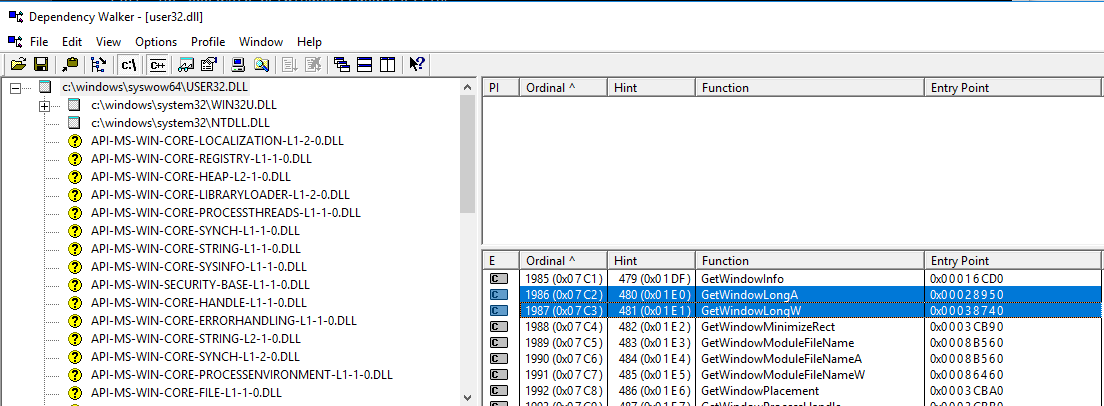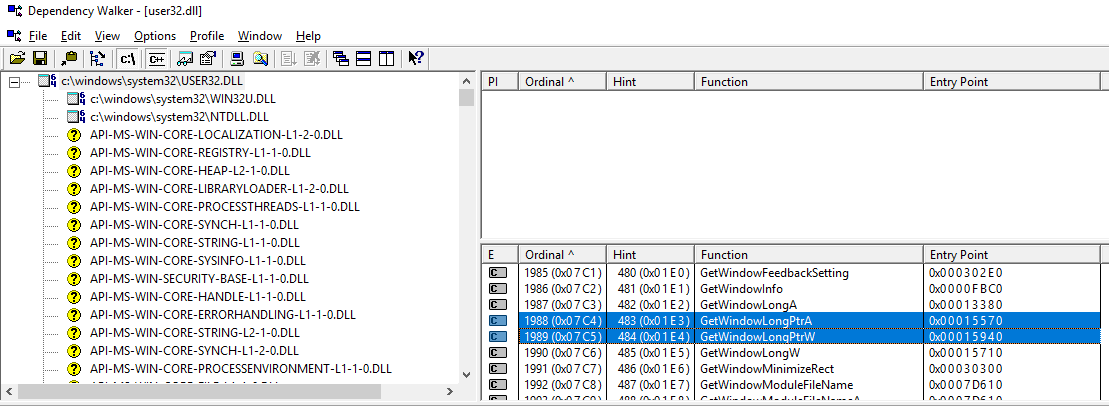I am trying to use GetWindowLongPtrA but I keep getting the "Unable to find an entry point named 'GetWindowLongPtrA' in DLL 'user32.dll'". (also SetWindowLongPtrA getting the same error). I've tried many solutions found on Google, but they didn't solve it.
Here is the declaration of the function I've written:
[DllImport("user32.dll")]
public static extern IntPtr GetWindowLongPtrA(IntPtr hWnd, int nIndex);
Tried to put EntryPoint = "GetWindowLongPtrA", changed GetWindowLongPtrA to GetWindowLongPtr, put CharSet = CharSet.Ansi, switched to GetWindowLongPtrW with CharSet = CharSet.Unicode etc., They all didn't work.
My computer is exactly "64-bit" (but cannot call that 64-bit WinAPI function?). the OS is Windows 10.
But my system drive is running out of free space. Is this a possible cause?

What is the solution for this problem?

![[1]: https://static.mcmap.net/file/mcmap/ZG-AbGLDKwfpKnMxcF_AZVLQamyA/3JrGw.png](https://static.mcmap.net/file/mcmap/ZG-AbGLDKwfpKnMxcF_AZVLQamyA/Jqgh8.png)


GetWindowLongPtrAandGetWindowLongPtrWis correct name for 64bit process.GetWindowLongAandGetWindowLongWfor 32. and you need correct choose A or W depend are window is unicode currentrly – Breeks1)Quick Options,2)Detailed Options. Just dump your Downloads and Media folders onto a low-profile USB drive or SD-Disk? Runcleanmgr.exeafterwards and maybe compression (for a fast SSD drive). – HamillGetWindowLongPtrand assignCharSet = CharSet.Auto, it will correctly pick theWorAversion and handle the string conversions. – Stafford